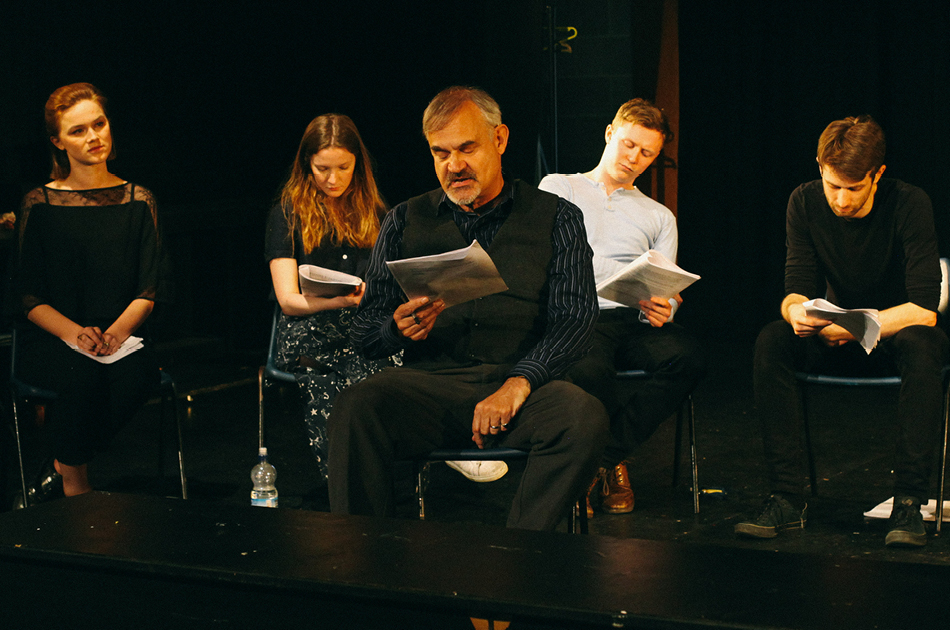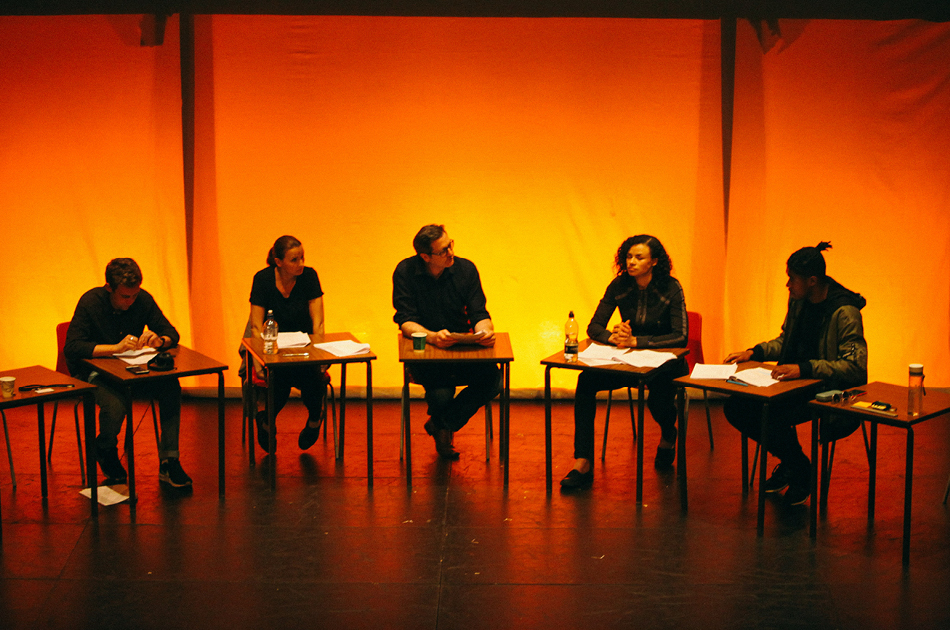In the second of a series of posts, guest blogger Rosemary Waugh recounts her experience of The North Wall’s festival of new writing, Alchymy, which took place from Friday 7 – Sunday 9 April. Here’s her round-up of Sunday’s events:

Rosemary Waugh
Unlike on the Saturday of Alchymy 2017 where I positively gorged on consecutive events, my Sunday schedule was made up of just three: a rehearsed reading of Gross Capital: The Hanging of William Duell by James Mannion, work-in-progress The B*easts by Monica Dolan and a performance of Weapons by Tom Brennan. The day’s programme also included a morning masterclass with Stephen Unwin, Shaping New Plays, which looked at how directors approach new texts.
Gross Capital is an intriguing play composed for a relatively large cast and set in 1740. Both its historical location and basic plot conceit are fascinating (or rather, they are to geeks like myself who believe a day at the Hunterian Museum is a day well spent). William Duell is a 17-year-old convicted murderer. After being hung, his body is sold to the local surgeon who plans to dissect it in front of his medical students. Much to the doctor’s chagrin, the boy wakes up moments before the scalpel goes in – it turns out the hangman did a botched job and Master Duell is still with the living. What follows is a series bizarre and often borderline comical exchanges between the doctors, the lawmakers, the priest and the hangman.

Gross Capital
One of the things I enjoyed about Gross Capital is that it inadvertently touches on the connection between theatres (meaning the rooms where plays are performed) and operating theatres, named because students and other viewers used to be invited to watch surgery and autopsies. The Summerhall venue in Edinburgh was once a veterinary college and if you ever go to watch a play in the atmospheric Anatomy Lecture Theatre you can experience first-hand a similar set up to the one in which the characters in Gross Capital find themselves.
Whereas Mannion’s work uses an historical setting, the final piece of the day, Weapons is in a contemporary setting. It opens with the news that a white policeman has killed a black citizen as the result of incompetence and fear. This major plot point is surrounded by the more mundane details of life working in a police station. The tea run is a constant concern and one of the best officers is seeing out her last day working at the station. The play carries with it a heavy sense of the approaching end of days. You get the impression that the actual narrative could be interpreted as largely allegorical or in some way demonstrative of society collapsing in a much larger manner than just these specific events. The lighting design illuminating the semi-staged performance was instrumental in communicating both a sense of the sun setting on all of the characters (literally and metaphorically) and the palpable threat of fire and rage.

Weapons
The stand-out piece of the day was Dolan with The B*easts. If I remember correctly, this was the first time the piece had been performed for an audience, although from Dolan’s assured and meticulously measured performance those watching would have been hard-pressed to detect this. It’s going on to the Edinburgh Fringe this summer (according to an email I received this week) and is therefore on my list of recommendations for people to see at the festival.
When a one-woman (or one-man) monologue works well it’s definitely one of the most compelling forms of theatre. The B*easts drip-feeds the audience details of a criminal case relating to the hyper-sexualisation of a young girl. Dolan plays a psychotherapist tasked with producing a report of the girl’s mother. The child’s story is one with relevance to modern discussions about female sexuality, but it stops short of making this message too overt. It did, however, get one audience member in front of me visibly and emphatically nodding along. The combination of the main narrative with details from the counsellor’s own life is slightly less successful. The secondary storyline definitely has a place in the piece, but needs marginally better integration.
The sparser schedule gave the day a distinctively Sunday feeling. It also created a nice balance seeing three longer pieces set in contrast to the extracts staged on Friday and Saturday. In the days since, Dolan’s performance has replayed itself in my mind’s eye. It’s a deliciously slippery dilemma that The B*easts deals with, and the show deliberately challenges audience preconceptions. I think I’ll spend a good few train journeys mulling over that one.
Rosemary Waugh is a freelance writer and theatre critic. She is the Reviews Editor for Exeunt magazine, which she co-runs with Alice Saville. She also reviews regularly for The Stage in the South West and South Wales. Previous work includes being a panellist for The Sick of the Fringe at the Wellcome Collection and collaborating with a critical group at the Inbetween Time festival.


